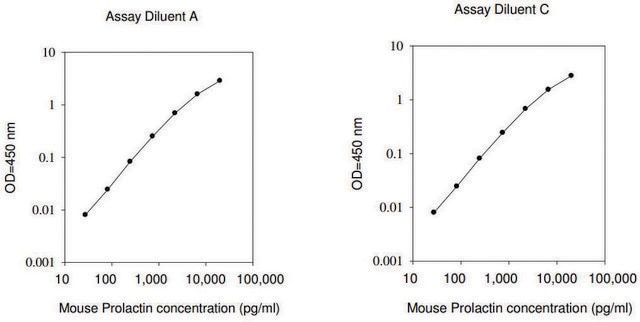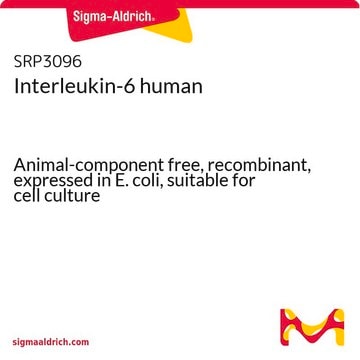SRP4688
Prolactin from mouse
recombinant, expressed in E. coli, ≥95% (SDS-PAGE), ≥95% (HPLC)
Sinónimos:
Luterotropic hormone, Lutetropin, Mammotropin, PRL
About This Item
Productos recomendados
origen biológico
mouse
recombinante
expressed in E. coli
Análisis
≥95% (HPLC)
≥95% (SDS-PAGE)
formulario
lyophilized
mol peso
~22.5 kDa
envase
pkg of 50 μg
condiciones de almacenamiento
avoid repeated freeze/thaw cycles
técnicas
cell culture | mammalian: suitable
impurezas
endotoxin, tested
Nº de acceso NCBI
Condiciones de envío
wet ice
temp. de almacenamiento
−20°C
Información sobre el gen
mouse ... Prl(256249)
Descripción general
Aplicación
Acciones bioquímicas o fisiológicas
Forma física
Reconstitución
Código de clase de almacenamiento
11 - Combustible Solids
Clase de riesgo para el agua (WGK)
WGK 3
Punto de inflamabilidad (°F)
Not applicable
Punto de inflamabilidad (°C)
Not applicable
Certificados de análisis (COA)
Busque Certificados de análisis (COA) introduciendo el número de lote del producto. Los números de lote se encuentran en la etiqueta del producto después de las palabras «Lot» o «Batch»
¿Ya tiene este producto?
Encuentre la documentación para los productos que ha comprado recientemente en la Biblioteca de documentos.
Nuestro equipo de científicos tiene experiencia en todas las áreas de investigación: Ciencias de la vida, Ciencia de los materiales, Síntesis química, Cromatografía, Analítica y muchas otras.
Póngase en contacto con el Servicio técnico







